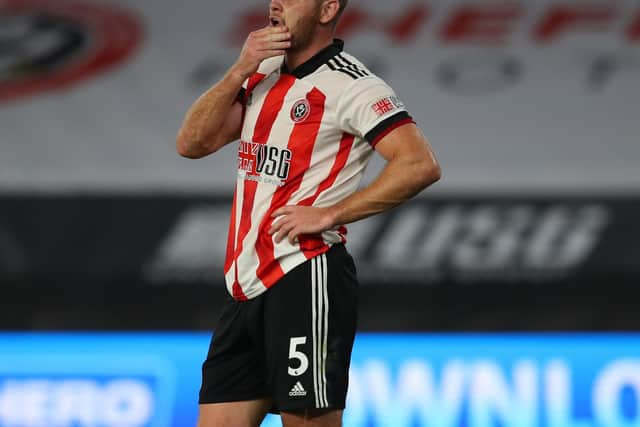The numbers that reveal why Sheffield United were right to withdraw Jack O'Connell from the firing line
and live on Freeview channel 276
Manager Chris Wilder encouraged O’Connell to tackle the problem once and for all last month, with United’s own in-house medical team subsequently referring the 26-year-old to a specialist in London, where he underwent a successful procedure following the recent Premier League game against Leeds.
Despite acknowledging the difficulties that losing one of his most influential players would cause, Wilder was persuaded to take action after noticing a significant downturn in O’Connell’s performance levels since competition resumed four weeks ago.
Advertisement
Hide AdAdvertisement
Hide AdAfter starting United opening two league fixtures of the new campaign, but before being withdrawn from the Yorkshire derby against Marcelo Bielsa’s side, O’Connell’s figures for dribbles completed and challenges won were 50 per cent and 42 per cent respectively. These compare to 60 per cent and 61 per cent throughout the 2019/20 schedule - when United finished ninth in the division.
But the most dramatic slide came in terms of O’Connell’s prowess in the air, where he prevailed in only 18.8 per cent of the aerial duels he took part in against Wolves and Villa. That compares to the number of 67.9 per cent he returned last season.
It is that, combined with suspicions that O’Connell’s influence would only deteriorate further, which convinced both Wilder and the player himself to take action. Jack Robinson, O’Connell’s deputy, has out-performed him by all three of those measures since stepping into the breach.
“It had reached a point where I don’t think Jack was doing himself any favours,” Wilder said, referring to O’Connell. “At his best, he’s one of the best out there, without a shadow of a doubt. But that’s not where he was at, he was feeling it, and so the best thing - for him and us - was to get it sorted.”
Advertisement
Hide AdAdvertisement
Hide AdIt is testament to O’Connell’s durability - and an indication of the pain he must have been in ahead of the meeting with Wolves - that Wilder confirmed he had been managing the condition through much of his professional career.


